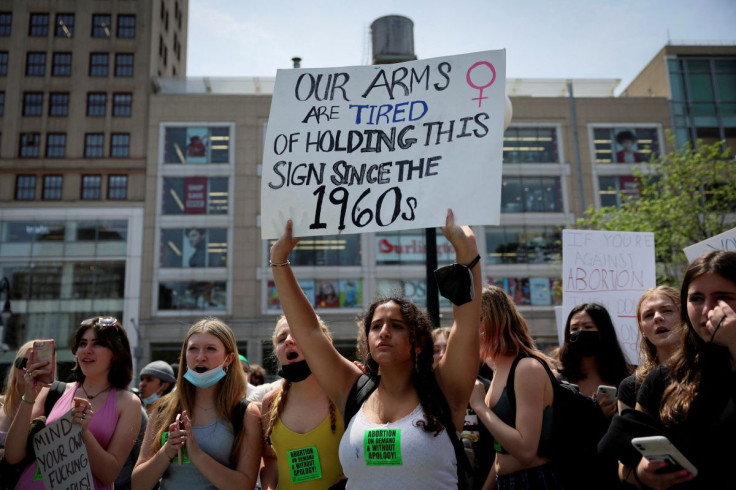Yellen Says Eliminating Abortion Rights Would Have 'Damaging Effects' On U.S. Economy

U.S. Treasury Secretary Janet Yellen on Tuesday said eliminating women's access to abortions would have "very damaging effects" on the U.S. economy, keeping some women from completing their educations, reducing lifetime earnings potential and keeping some out of the workforce.
Yellen in testimony to the Senate Banking Committee said research has shown that denying women access to abortions increases their odds of living in poverty or on public assistance.
"I believe that eliminating the rights of women to make decisions about women, whether to have children would have very damaging effects on the economy and would set women back decades," Yellen said in response to a question on the topic, a week after the leak of a draft Supreme Court decision that would strike down a constitutional right to abortion.
Yellen's comments drew a rebuke from Republican Senator Tim Scott of South Carolina, who said her assessment of the economic consequences of the abortion debate were "harsh" for such a painful issue.
"I think people can disagree on the issue of being pro-life or pro abortion. But in the end, I think framing it in the context of labor force participation, it just feels callous to me," said Scott, adding that he was raised by a single mother in poverty.
Yellen responded by saying that reproductive rights allow women to plan "fulfilling and satisfying" lives, which includes having the financial resources to raise a child.
"In many cases, abortions are of teenage women, particularly low-income and often Black, who aren't in a position to be able to care for children, have unexpected pregnancies, and it deprives them of the ability often to continue their education to later participate in the workforce," Yellen said.
"So there is a spillover into labor force participation, but it means the children will grow up in poverty and do worse themselves," Yellen said.
© Copyright Thomson Reuters 2024. All rights reserved.











